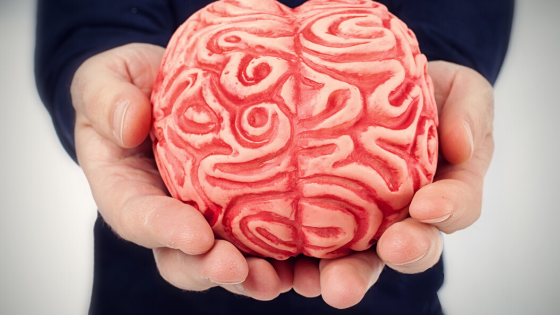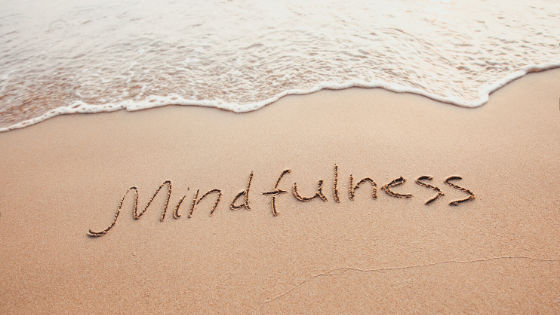Pleasure Hormones Help to Create Bad Habits
Whether it’s gluten, dairy, eggs, or coffee, creating bad habits may be pleasurable but also bring some level of pain. A few things factor into why they are so hard to break. One factor is the plastic nature of our brains which refers to the ability for it to change. Most of these substances catalyze the release of pleasure hormones.

Imagine your brain as a field covered with fresh snow. You walk from one end of the field to a birch tree on the other side. Looking back, you can see your footsteps clearly carving a path from your starting point to the birch tree. Now, imagine that every day for a week, you walked that same path- following your footprints from the previous days. As more snow falls on the rest of the field, your path to and from the birch tree has been dug down to the dirt. Let’s explore more about how the human brain works.
Creating Bad Habits: How Our Brain Works
This is how the brain works when it comes to creating habits. New connections are created by every act, word, and thought. Through repeated action, pathways in the brain become reinforced and turn into a habit. ‘Walking a path’ you’ve walked many times before are similar to habits like turning to chocolate or wine when you feel stressed or sitting on the couch after a long day. These habits become so ingrained in the brain that it happens almost automatically.
Now, imagine after a week, you decide to walk from your original starting point to a pine tree on the opposite side of the field. There is no path to this tree, so you have to trudge through deep snow to get there.
But you get there.
In the same way, adopting a new habit takes more effort than keeping to status quo, but it is possible. The human brain remains plastic long into adulthood so it is never too late to create new habits! As Dr. Norman Doidge, author of The Brain That Changes Itself, says, “…we don’t so much ‘break’ bad habits as replace bad behaviors with better ones.” It all starts with a shift in attention; cultivating curiosity toward the ‘automatic’ action and introducing the possibility of NOT acting on an urge, or of responding differently.
Here’s where mindfulness comes in…

Mindfulness & The Brain
Diana Winston of UCLA Mindful Awareness Research Center describes mindfulness as “Paying attention to present moment experience with open curiosity and a willingness to be with what is.” In the context of creating new habits, this means creating pause. Take a step back when you get the urge to do something you’d prefer not to do. Notice how the body feels, listening to the stories in your mind, and put distance between the urge and the action.
Simply note the feelings in your body and mind as being pleasant or unpleasant. Know that even if your immediate feelings are very unpleasant, the long-term effects of making a healthy diet and lifestyle change will produce longer-lasting and more profound benefits than the transient giddiness of a “guilty pleasure.” Bad habits will ultimately lead to long-term suffering in the form of chronic illness, cognitive decline, or metabolic imbalance. Here’s an easy exercise that will help train your brain and create new and good habits.
Functional Medicine: Training Your Brain for Good Habits
Choose one daily habit you’d like to change.
For the next week, before acting on this habit, stop and take five deep breaths. Then, notice how your body and mind feel. You don’t need to change your habit yet; just notice the feelings that come before the action.
You may want to record your discoveries in a journal.
One Last Note:
KINDNESS is KEY. Remember: you are on this journey of wellness and vitality because you care for yourself. There is nothing inherently wrong with you. There are merely subtle refinements to be made in your physical health which can help you to feel more fully alive and ready to share your unique gifts with the world. Together, we are working as a team to optimize your health. We want to see you shine! Throughout this process, especially in times of challenge and transition, remind yourself that you are here at Linden & Arc Vitality Institute because you love yourself enough to want to feel better. Be kind in the way you relate to your mind and your body. Be curious about why you’ve developed certain habits and resist the temptation to judge yourself for them. If you take a step back or can’t find clarity at the end of certain suffering, choose to trust the process and keep going. Do this because you love yourself; because you’re worth it.
Interested in reading more on mindfulness? We recommend Full Catastrophe Living by Jon Kabat-Zinn, and The Mind & The Brain by Jeffrey Schwartz, M.D
“Mindfulness is about being fully awake in our lives. It is about perceiving the exquisite vividness of each moment. We also gain immediate access to our own powerful inner resources for insight, transformation, and healing.” – Jon Kabat-Zinn



